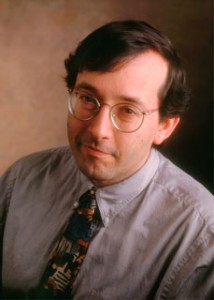 Marshall Brinn is the GENI Architect for the GENI Project Office (GPO). In that capacity he will serve as technical director of the GPO development and integration efforts and will be co-chairing the GENI architectural steering committee.
Marshall Brinn is the GENI Architect for the GENI Project Office (GPO). In that capacity he will serve as technical director of the GPO development and integration efforts and will be co-chairing the GENI architectural steering committee.
Marshall has been a Principal Engineer at Raytheon BBN Technologies since 1987. He has designed, developed and deployed numerous robust and high-performance data acquisition, integration, analysis and exploration systems for a variety of application domains. He has broad experience in designing, building, controlling extremely large-scale systems whose function and hardware are broadly distributed. In addition, he has a particular interest in applying evolutionary algorithms to effect innovative data modeling and mining.
Since 2004, Marshall has directed the development of data gathering and analysis systems for both government and commercial customers, employing a variety of data mining and signal processing techniques to provide real-time or near-real-time situation awareness. Most recently, he led the effort to integrate longitudinal medical records from a range of disparate heterogeneous sources in a manner supporting efficient exploration.
From 1999 to 2004, he served as Technical Director and then Survivability Architect of UltraLog, a DARPA program that focuses on the assured survivability of distributed agent-based systems. From 1998 to 2001, Marshall was Technical Director of the Advanced Logistic Planning (ALP) program, a DARPA research project demonstrating and examining the capabilities of agent-based technologies to provide efficient solutions to the planning and execution of large distributed military logistics problems. In that capacity, he led the design and implementation of an extremely large distributed networked federated computation environment with assured performance characteristics.
From 1995 to1998, Marshall was the technical lead of BEST Solutions, an optimized solution for large resource scheduling and optimization problems, particularly in the area of field service planning and delivery. Prior to his work on optimization technologies, Marshall worked on the FDS, a large system for real-time processing and analysis of underwater acoustic data.
Marshall earned both an M.S. in Applied Mathematics and Computer Science and a B.S. in Applied Mathematics at Harvard University. He was a National Science Foundation Graduate Scholar (1982).


